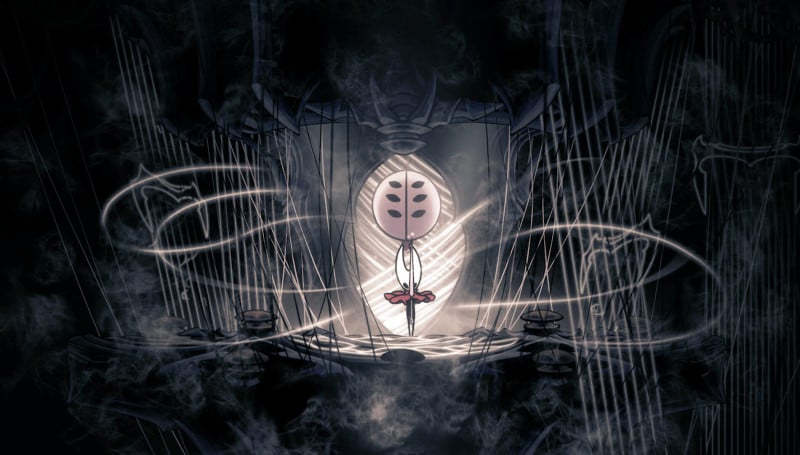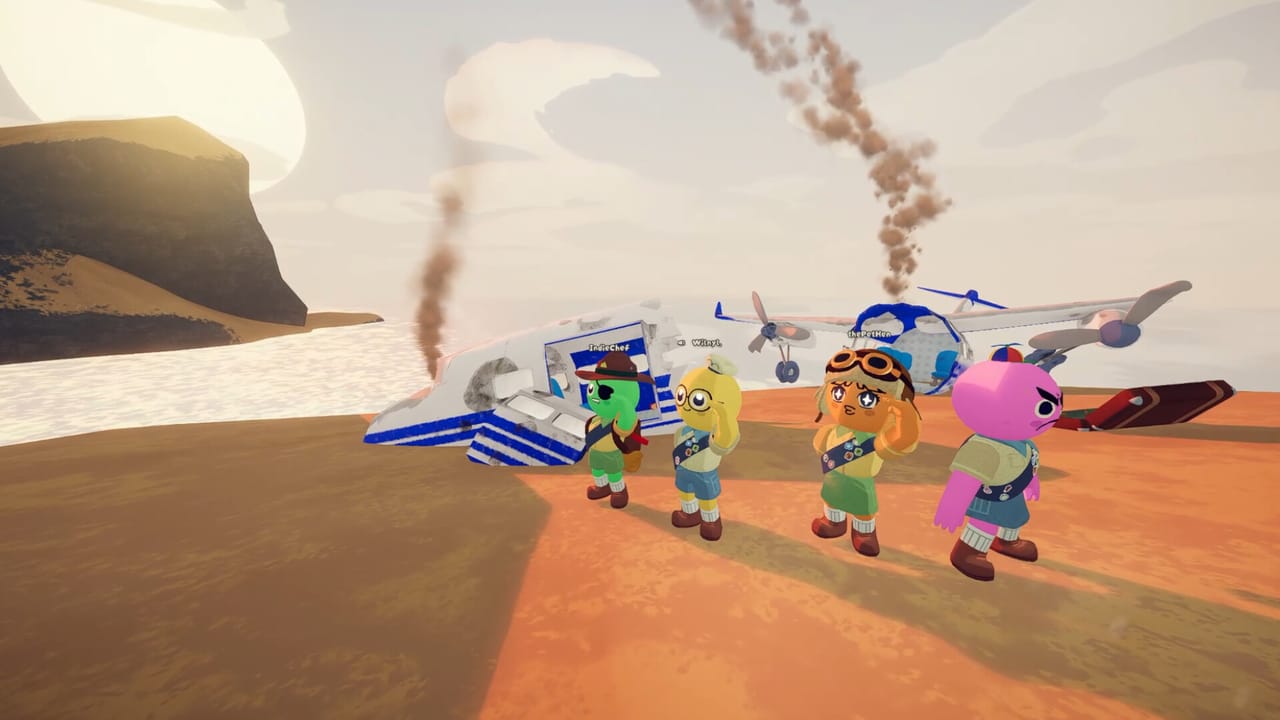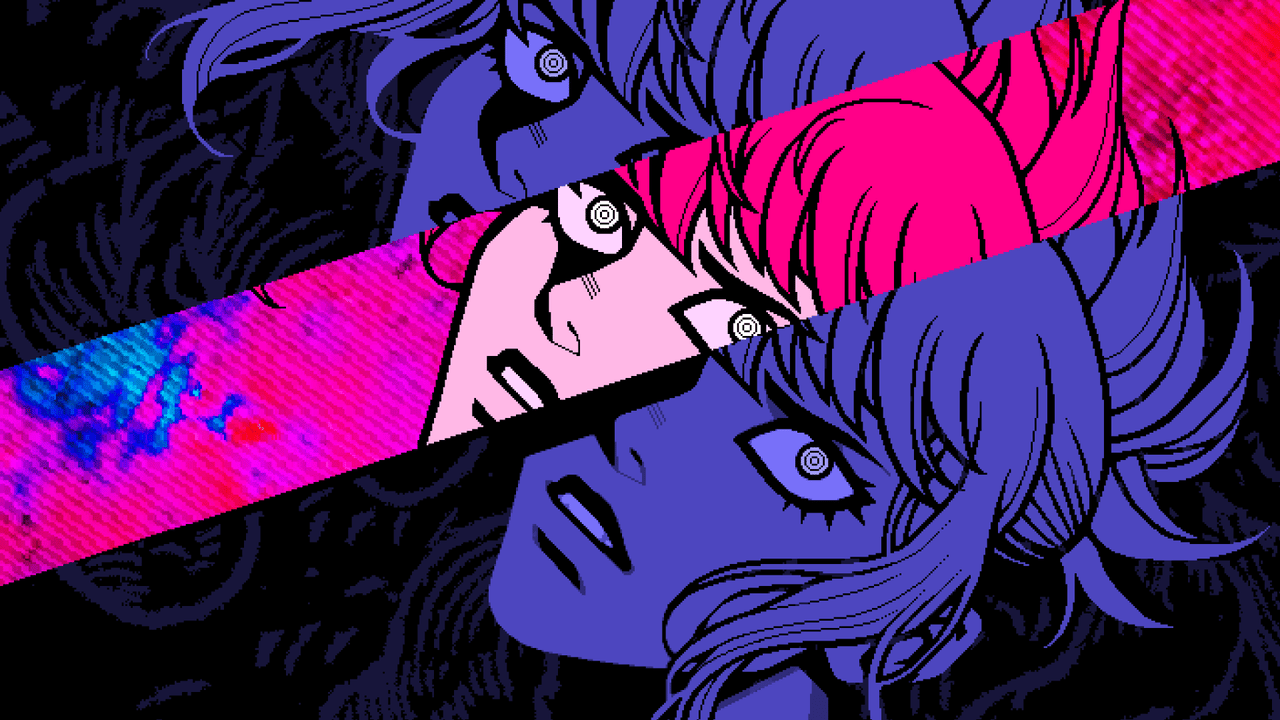What developers can learn from the indie social co-op games topping the Steam charts
Peak, the social co-op game from developers Aggro Crab and Landfall, has sold nearly 10 million copies since its release in June, according to numbers from Alinea Analytics. It's remained one of the top-played games on Valve's Steam platform since its release, reaching a peak concurrent player count of 170,759 in mid-August. Peak is immensely popular—and its playerbase keeps growing. Hitting that 10 million milestone would make Peak the second "budget indie," as Alinea Analytics called it, to reach that point—the first was another social co-op game: R.E.P.O. These two titles follow an emergence of social-driven co-op games that have largely been made by independent studios with lower budgets—the likes of Landfall's 2024 Content Warning, horror survival game Lethal Company, multiplayer fishing game Webfishing, and even InnerSloth's social deduction mega-hit Among Us. Social games are nothing new: Multiplayer is a core element of plenty of video games; games like Fortnite, Minecraft, and Call of Duty are often vehicles for chatting with a group of friends. Peak, R.E.P.O, and the like, though are something different.The core appeal of "weirdo social games"Aggro Crab art director Galen Drew told Game Developer that "weirdo social games" like Peak have existed for some time, pointing back to games like Among Us and Lethal Company. There are games you can play with your friends, but these games are ones that are designed around "the experience of hanging out with your friends," Drew said. "It's the expressiveness in the way the characters move and look, and the types of things you can do. It's all just a vehicle to make your friends laugh."Related:Players clearly want that: The top three new games on Steam, by copies sold, are R.E.P.O, social co-op drug dealing game Schedule I, and Peak, according to Alinea Analytics. The firm's estimates suggest that co-op games on Steam brought in billion in revenue in the first half of 2025; "the highest six-month total ever recorded for the genre," according to analyst Rhys Elliot. Michael Chu, CEO and co-founder of Treehouse Games, which is making co-op, seafaring survival game Voyagers of Nera, told Game Developer that "there are more great options for co-op games than ever, so the competition feels intense as a developer."He continued: "But a bigger and more diverse audience of playerslooking to gaming as their favorite way to hang out every year."With that in mind, it makes sense that developers would start to really hone in on that experience—and purpose-build games that give players powerful moments with friends.Related:What to make of "Friendslop"A new term has emerged to describe the growing genre that Peak, Lethal Company, and R.E.P.O find themselves in: "Friendslop." Friendslop was used first in a joke: A Twitter user posted three pictures from Lethal Company, Content Warning, and R.E.P.O and called the genre friendslop. "Its sole purpose of existence is friendfarming," they said. The term—or, maybe, a desire to dunk on it on social media—caught on. Depending on who you talk to, it's used in jest, is insulting to games it's used to refer to, or it's something to embrace. What is uncontested, though, is the demand for games that are built for socialization, experimentation, and silliness with one's buddies."The core of a friendslop game is where the fun of the game comes from stupid stuff you and your friends do, and a lot of it is driven by the mistakes you make," Drew said of Peak. "It's a game where you're all dumb idiots trying to do something difficult and complicated, and failing is the funny part."Aggro Crab and Landfall used the friendslop format but stripped away the horror game roots to make Peak, Drew said. Horror is a good fit for the genre because it adds an inherent pressure that ends up being slapstick comedy. There's a performance element to it, too, Drew said. "Horror is an easy pressure to put on those kinds of challenges, because it's just easy to get people flustered and freaking out and making a mistake that's funny," he said. "In the case of Content Warning, that's a great mechanic, because filming is a good incentive to even, like, perform the funny."Related:For Peak, the collaboration between the Content Warning and Another Crab's Treasure makers, the developers wanted to capture a similar feeling but about surviving with friends. There's no horror element to up the ante; instead, the antagonist is the climb—not any sort of looming monster. The mountains themselves are there to lure the player into taking risks and making mistakes, Drew said. "Almost every item we add is meant to be tempting to use in a way that's dumb," he said. "Generally, we don't add items that are strictly useful—there are a few, obviously, like the piton or rope. But almost all of them have this built in failure point. You still have to place the piton, and it takes time, and you could fall while you're doing it. The rope, you still have to spool out a certain length, and you don't really have a great idea of how much you're spooling out. They're all intentionally chosen so that your friends are yelling at you because you didn't spool out enough rope when they climb."A tonal change for the genreChu told Game Developer that Voyagers of Nera, which is slated for early access in mid-September, will deliver similar sorts of moments. Voyagers of Nera, however, doesn't necessarily fit under the "genre" of friendslop, despite its similarities in goal—to create moments for friends."We built the game to deliver memorable moments with friends, but our game focuses on a different flavor. We wanted to create moments of shared discovery as players explore far off locations together, rescue magical spirits, and battle deep sea monsters. We think there's something romantic and familiar about starting out at the horizon on the ocean and wondering, ‘What's out there?'"Voyagers of Nera isn't necessarily built upon the performance and humor of a game like Peak or Content Warning, but still hinges on gameplay that encourages socialization. Peak and other games more firmly situated in the friendslop world seemingly rely more on sessions than an ongoing experience; Peak's maps rotate every 24 hours, something that Drew said was a technical constraint rather than an intentional decision. But it's a constraint that Drew said plays into the excitement of playing Peak: People want to see and try the different maps. The rotations become like Destiny raids, he said. There's some fear of missing out on some unique experience, but it's not so exclusive that it drives people away—there's always another day. "It will feel like a special thing every time you," Drew added.Voyagers of Nera, on the other hand, is a shared world that lives on a server and up to 10 people per session can come back to it, like Palworld or Rust. Regardless of the differences, though, the core of the experience remains: "Games have become a default way to spend quality time with friends," Chu said. And games that are built to support these relationships are more popular than ever.
#what #developers #can #learn #indieWhat developers can learn from the indie social co-op games topping the Steam charts
Peak, the social co-op game from developers Aggro Crab and Landfall, has sold nearly 10 million copies since its release in June, according to numbers from Alinea Analytics. It's remained one of the top-played games on Valve's Steam platform since its release, reaching a peak concurrent player count of 170,759 in mid-August. Peak is immensely popular—and its playerbase keeps growing. Hitting that 10 million milestone would make Peak the second "budget indie," as Alinea Analytics called it, to reach that point—the first was another social co-op game: R.E.P.O. These two titles follow an emergence of social-driven co-op games that have largely been made by independent studios with lower budgets—the likes of Landfall's 2024 Content Warning, horror survival game Lethal Company, multiplayer fishing game Webfishing, and even InnerSloth's social deduction mega-hit Among Us. Social games are nothing new: Multiplayer is a core element of plenty of video games; games like Fortnite, Minecraft, and Call of Duty are often vehicles for chatting with a group of friends. Peak, R.E.P.O, and the like, though are something different.The core appeal of "weirdo social games"Aggro Crab art director Galen Drew told Game Developer that "weirdo social games" like Peak have existed for some time, pointing back to games like Among Us and Lethal Company. There are games you can play with your friends, but these games are ones that are designed around "the experience of hanging out with your friends," Drew said. "It's the expressiveness in the way the characters move and look, and the types of things you can do. It's all just a vehicle to make your friends laugh."Related:Players clearly want that: The top three new games on Steam, by copies sold, are R.E.P.O, social co-op drug dealing game Schedule I, and Peak, according to Alinea Analytics. The firm's estimates suggest that co-op games on Steam brought in billion in revenue in the first half of 2025; "the highest six-month total ever recorded for the genre," according to analyst Rhys Elliot. Michael Chu, CEO and co-founder of Treehouse Games, which is making co-op, seafaring survival game Voyagers of Nera, told Game Developer that "there are more great options for co-op games than ever, so the competition feels intense as a developer."He continued: "But a bigger and more diverse audience of playerslooking to gaming as their favorite way to hang out every year."With that in mind, it makes sense that developers would start to really hone in on that experience—and purpose-build games that give players powerful moments with friends.Related:What to make of "Friendslop"A new term has emerged to describe the growing genre that Peak, Lethal Company, and R.E.P.O find themselves in: "Friendslop." Friendslop was used first in a joke: A Twitter user posted three pictures from Lethal Company, Content Warning, and R.E.P.O and called the genre friendslop. "Its sole purpose of existence is friendfarming," they said. The term—or, maybe, a desire to dunk on it on social media—caught on. Depending on who you talk to, it's used in jest, is insulting to games it's used to refer to, or it's something to embrace. What is uncontested, though, is the demand for games that are built for socialization, experimentation, and silliness with one's buddies."The core of a friendslop game is where the fun of the game comes from stupid stuff you and your friends do, and a lot of it is driven by the mistakes you make," Drew said of Peak. "It's a game where you're all dumb idiots trying to do something difficult and complicated, and failing is the funny part."Aggro Crab and Landfall used the friendslop format but stripped away the horror game roots to make Peak, Drew said. Horror is a good fit for the genre because it adds an inherent pressure that ends up being slapstick comedy. There's a performance element to it, too, Drew said. "Horror is an easy pressure to put on those kinds of challenges, because it's just easy to get people flustered and freaking out and making a mistake that's funny," he said. "In the case of Content Warning, that's a great mechanic, because filming is a good incentive to even, like, perform the funny."Related:For Peak, the collaboration between the Content Warning and Another Crab's Treasure makers, the developers wanted to capture a similar feeling but about surviving with friends. There's no horror element to up the ante; instead, the antagonist is the climb—not any sort of looming monster. The mountains themselves are there to lure the player into taking risks and making mistakes, Drew said. "Almost every item we add is meant to be tempting to use in a way that's dumb," he said. "Generally, we don't add items that are strictly useful—there are a few, obviously, like the piton or rope. But almost all of them have this built in failure point. You still have to place the piton, and it takes time, and you could fall while you're doing it. The rope, you still have to spool out a certain length, and you don't really have a great idea of how much you're spooling out. They're all intentionally chosen so that your friends are yelling at you because you didn't spool out enough rope when they climb."A tonal change for the genreChu told Game Developer that Voyagers of Nera, which is slated for early access in mid-September, will deliver similar sorts of moments. Voyagers of Nera, however, doesn't necessarily fit under the "genre" of friendslop, despite its similarities in goal—to create moments for friends."We built the game to deliver memorable moments with friends, but our game focuses on a different flavor. We wanted to create moments of shared discovery as players explore far off locations together, rescue magical spirits, and battle deep sea monsters. We think there's something romantic and familiar about starting out at the horizon on the ocean and wondering, ‘What's out there?'"Voyagers of Nera isn't necessarily built upon the performance and humor of a game like Peak or Content Warning, but still hinges on gameplay that encourages socialization. Peak and other games more firmly situated in the friendslop world seemingly rely more on sessions than an ongoing experience; Peak's maps rotate every 24 hours, something that Drew said was a technical constraint rather than an intentional decision. But it's a constraint that Drew said plays into the excitement of playing Peak: People want to see and try the different maps. The rotations become like Destiny raids, he said. There's some fear of missing out on some unique experience, but it's not so exclusive that it drives people away—there's always another day. "It will feel like a special thing every time you," Drew added.Voyagers of Nera, on the other hand, is a shared world that lives on a server and up to 10 people per session can come back to it, like Palworld or Rust. Regardless of the differences, though, the core of the experience remains: "Games have become a default way to spend quality time with friends," Chu said. And games that are built to support these relationships are more popular than ever.
#what #developers #can #learn #indie














